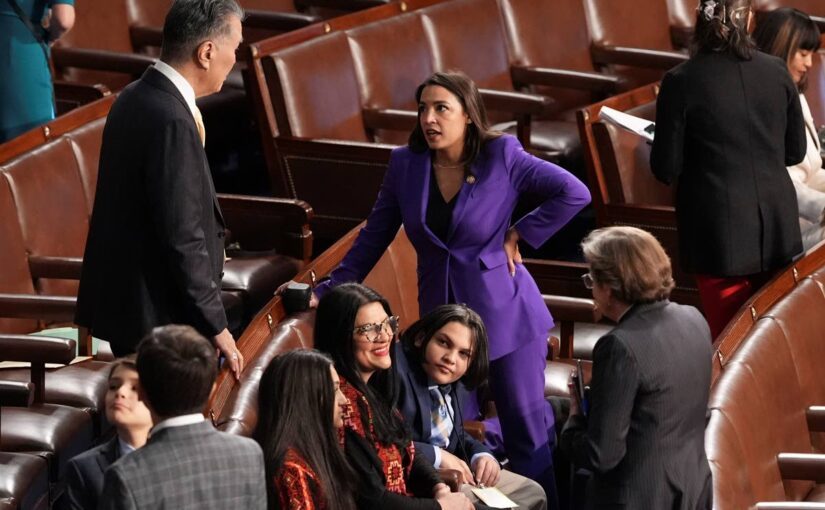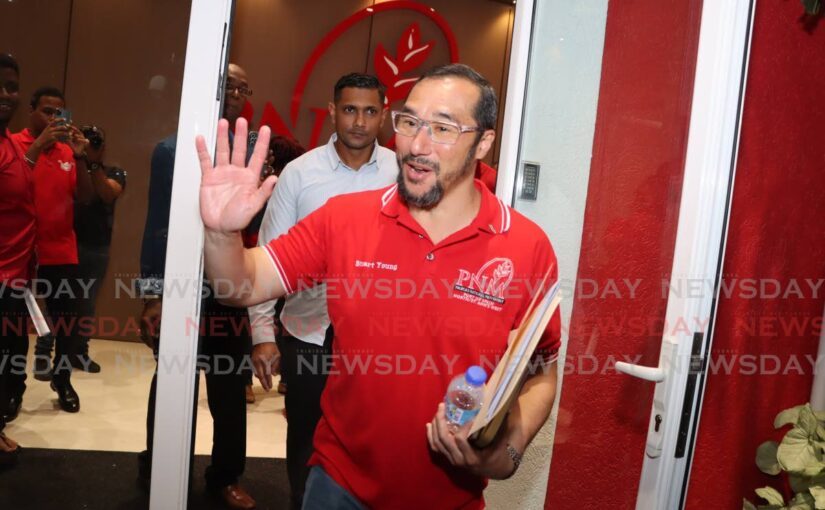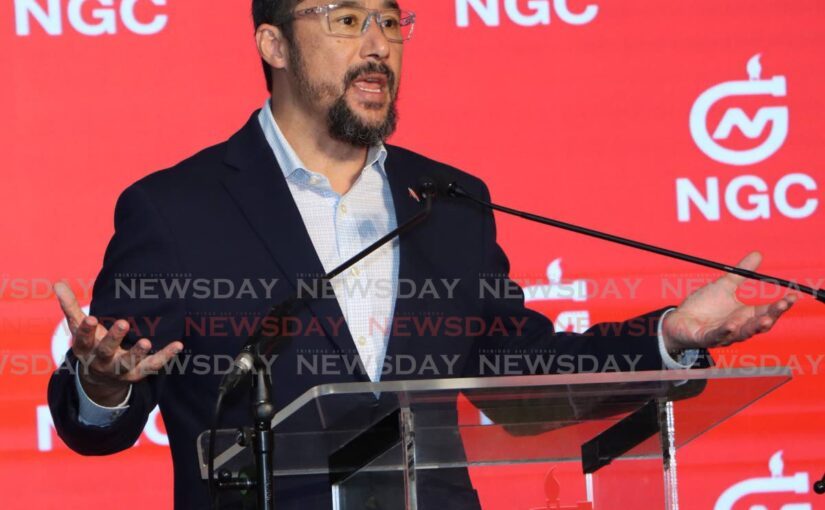Bangladesh is at a crossroads. In the summer of 2024, a student-led revolution unseated Sheikh Hasina, one of South Asia’s most entrenched...
Vous n'êtes pas connecté
- English
- Français
- عربي
- Español
- Deutsch
- Português
- русский язык
- Català
- Italiano
- Nederlands, Vlaams
- Norsk
- فارسی
- বাংলা
- اردو
- Azərbaycan dili
- Bahasa Indonesia
- Հայերեն
- Ελληνικά
- Bosanski jezik
- українська мова
- Íslenska
- Türkmen, Түркмен
- Türkçe
- Shqip
- Eesti keel
- magyar
- Қазақ тілі
- Kalaallisut ; kalaallit oqaasii
- Lietuvių kalba
- Latviešu valoda
- македонски јазик
- Монгол
- Bahasa Melayu ; بهاس ملايو
- ဗမာစာ
- Slovenščina
- тоҷикӣ ; toğikī ; تاجیکی
- ไทย
- O'zbek ; Ўзбек ; أۇزبېك
- Tiếng Việt
- ភាសាខ្មែរ
- རྫོང་ཁ
- Soomaaliga ; af Soomaali
Rubriques :
 Maroc - NEWSDAY.CO.TT - A la Une - Hier 07:41
Maroc - NEWSDAY.CO.TT - A la Une - Hier 07:41
Youth in politics: A call for generational leadership
ANNETTE HINKSON-PATROVANIE POLITICS HAS long been a realm dominated by the older generation, steeped in experience, tradition, and the legacy of years gone by. However, as the world becomes increasingly interconnected and rapidly evolving, the perspectives of the younger generation are more crucial than ever. The inclusion of youth in policymaking is not just a matter of diversity, but a necessity to build a future that resonates with contemporary realities. Why representation of youth matters Young people bring fresh perspectives and innovative ideas to the table. They are the digital natives who understand the nuances of technology, the advocates for climate change action, and the voices pushing for inclusivity and social justice. These are not merely buzzwords, they are transformative priorities that require energy, creativity, and urgency – qualities inherent in younger generations. Moreover, policies crafted today will disproportionately impact young people in the future. Whether it’s economic reforms, education systems, or environmental regulations, decisions made in boardrooms and parliamentary halls will shape the trajectory of their lives. Without their input, policymaking risks becoming disconnected from the very individuals it aims to serve. Barriers to entry Despite their enthusiasm, young people face several barriers to entering politics. Structural challenges like high entry costs, limited access to influential networks, and age-related biases discourage participation. Additionally, there’s often a perception that politics is an "elder’s game," where experience is valued over vision. These obstacles, while significant, can be overcome with deliberate strategies and institutional support. Steps toward inclusion Education and awareness: Civic education must emphasise the importance of political involvement from a young age. Schools and universities should encourage discussions about governance, provide platforms for debates, and invite young role models in politics to share their experiences. Lowering entry barriers: Governments and political parties must simplify bureaucratic hurdles and reduce the financial costs associated with running for office. Initiatives like scholarships for political studies or grants for youth-led campaigns can significantly increase accessibility. Creating pathways: Mentorship programmes pairing young aspirants with seasoned politicians can be transformative. These programmes help bridge the knowledge gap, provide networking opportunities, and instil confidence in future leaders. Youth-focused agendas: Political parties should actively develop platforms addressing issues critical to young voters. Tackling student debt, promoting affordable housing, and advancing technology-friendly policies can energise youth engagement. Leveraging technology: Social media and digital platforms are powerful tools for mobilising younger generations. Online forums and virtual campaigns can provide the reach and accessibility required to connect with a tech-savvy audience. Inspiring change through action Success stories worldwide illustrate the power of youth in politics. Leaders like Sanna Marin of Finland, who became the world’s youngest sitting prime minister at 34, and Alexandria Ocasio-Cortez, a US congresswoman elected at 29, demonstrate that age is not a barrier to impactful leadership. These trailblazers inspire young people everywhere to step into roles traditionally seen as off-limits. A collaborative future Encouraging youth participation in politics is not about sidelining older generations but about creating a collaborative space where experience and innovation coexist. The infusion of young blood into the political process can spark long-overdue reforms, break away from stagnation, and address issues that might otherwise remain overlooked. As we face pressing global challenges – climate crises, economic shifts, and social inequalities – it’s imperative to ensure that the voices of young people are heard. They are not just the le`aders of tomorrow, they are change makers of today. To ignore their input is to risk stagnation; to embrace it is to guarantee a progressive and inclusive future. The call is clear: to the youth of today, politics is not out of your reach. Your voices are needed, your perspectives invaluable, and your energy vital. Step forward, challenge the status quo, and lead the change you wish to see. The post Youth in politics: A call for generational leadership appeared first on Trinidad and Tobago Newsday.
Articles similaires
The kind of person we need in Parliament
THE EDITOR: As we head into another general election, it’s time for us to think about the kind of representatives we want in Parliament. For years...
The kind of person we need in Parliament
THE EDITOR: As we head into another general election, it’s time for us to think about the kind of representatives we want in Parliament. For years...
Beyond Money And Education: The New Class War In America – OpEd
In recent years, the United States has witnessed a profound transformation in its political landscape, challenging traditional notions of class and...
Young’s promises won’t be fulfilled
THE EDITOR: Stuart Young’s address at the Heroes Foundation’s end-of-programme graduation ceremony is sure to follow the very old PNM paradigm of...
Matric results: Political parties congratulate matric class of 2024 while demanding education system overhaul
The matric class of 2024 has received widespread congratulations from various political parties and various leaders, marking an encouraging pass rate...
‘I know someone in a warehouse with a master’s degree’: how to break the cycle of youth unemployment
The number of young people who are not in jobs, education or training is poised to hit 1 million, unless proper steps are taken to help them secure...
QC Launches “Voices of Hope and Future” Booklet
Doha: Qatar Charity (QC) has issued the "Voices of Hope and Future" booklet, offering an inspiring platform for sponsored youth to advocate for...
QC Launches “Voices of Hope and Future” Booklet
Doha: Qatar Charity (QC) has issued the "Voices of Hope and Future" booklet, offering an inspiring platform for sponsored youth to advocate for...
Young and intelligent way to go
THE EDITOR: I have been advocating for decades that TT needs our young and intelligent people to take us forward. The resignation of Dr Rowley and...
Les derniers communiqués
-
Aucun élément





